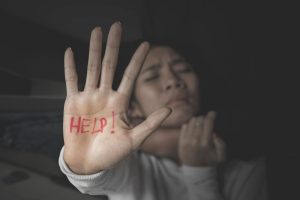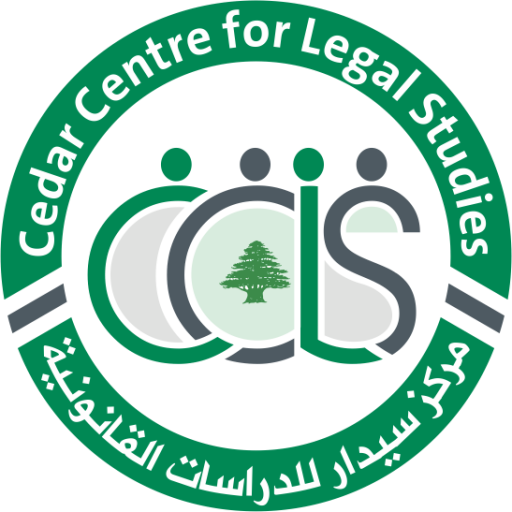Cedar Centre For Legal Studies
Joint press release
Lebanon: 5 years on, no tangible progress in enforcing anti-torture law
26/06/2023

26 June 2023
On the International Day in Support of Victims of Torture, we, the undersigned organizations, urge the Lebanese authorities to diligently and meaningfully enforce Lebanon’s Anti-Torture Law. It is imperative for the authorities to actively pursue investigations into every reported case of torture and ill-treatment, ensuring that those responsible are held accountable through prosecution and fair trials, and sentenced with appropriate punishments if found guilty.
Lebanon ratified the United Nations’ Convention against Torture and Other Cruel, Inhuman or Degrading Treatment or Punishment in 2000, along with its Optional Protocol in 2008. On September 19, 2017, the Lebanese Parliament passed Law No. 65/2017, which criminalizes torture but falls short of fulfilling Lebanon’s obligations under the UN Convention.
Although over five years have passed since the enactment of the Anti-Torture Law, authorities have yet to fully implement it. In July 2019, the government appointed the five members to the National Preventative Mechanism against Torture, whose creation is required under the Optional Protocol. However, the authorities have yet to adopt the implementation decrees necessary for the mechanism to begin its work, which includes conducting regular, unannounced visits to all detention sites and monitoring the progress of torture complaints.
In one prominent example, Bashar Abed Al-Saud, a Syrian refugee, died on August 31, 2022, the day after his arrest by Lebanon’s State Security service after allegedly being brutally tortured in the State Security branch in Tebnin, southern Lebanon. On September 2, 2022, the government’s commissioner of the Military Court in Beirut ordered the arrest of an officer and four members of the State Security branch in Tebnin accused of torturing Al-Saud. The commissioner referred the case to the military investigative judge for further examination, and on September 7, the Al-Saud family’s lawyer lodged a torture complaint with the Public Prosecution of the Court of Cassation.
However, the complaint was referred to the military judiciary, contrary to the provisions outlined in the Anti-Torture Law to bring such cases before civilian courts. On November 29, 2022, the military investigative judge assigned to the case issued an indictment for the five, bringing the officer and the four State Security members to trial, but the judge maintained that the military court was competent to handle the case. On April 5, 2023, the court ordered the pre-trial release of all
detainees involved in the case, except for one lower-ranking defendant. The case remains pending, with the next hearing scheduled for November 17, 2023.
In another case, on January 11, 2022, the public prosecutor in Beirut dismissed a torture complaint lodged by playwright Ziad Itani against members of State Security without providing any explanation, and apparently without conducting a thorough investigation, Itani had been arrested by State Security in 2017 on suspicion of espionage for Israel and reported being subjected to torture. In 2018, a court acquitted him of these charges.
In 2020, parliament amended article 47 of the Code of Criminal Procedure, explicitly granting lawyers the right to be present with detainees during preliminary interrogations by security services. However, security services have frequently violated this provision, according to Legal Agenda, denying detainees the right to have legal representation during their interrogations. Some detainees have experienced physical violence, as in the Al-Saud case.
Since January 2023, the Lebanese army has summarily deported Syrian refugees to Syria, in violation of Article 3 of the United Nations’ Convention against Torture and Lebanon’s obligations under the customary international law principle of non-refoulement.
In one high-profile case in early 2023, the Lebanese army summarily deported more than 200 Syrians it had recently rescued from a sinking boat off the coast of northern Lebanon. Many of the deportees were registered with the United Nations High Commissioner for Refugees (UNHCR).
We urge the Lebanese authorities to take the following actions:
- Ensure compliance with Article 47 of the Code of Criminal Procedure, particularly by guaranteeing access to legal representation and medical examinations for all detainees during their preliminary interrogation by security services;
- Respect pre-trial detention deadlines outlined in the Code of Criminal Procedure;
- Conduct prompt, independent, impartial, and effective investigations into complaints and reports of torture, as well as cruel, inhuman, and degrading treatment or punishment;
- Refer all cases of torture to the regular courts, as stipulated in Article 15 of the Code of Criminal Procedure, and uphold the right to an independent, fair, and transparent trial for all parties involved;
- Immediately cease the summary deportation of Syrian refugees, allowing people at risk of deportation to get legal advice, engage with representatives from the United Nations High Commissioner for Refugees (UNHCR), and contest deportation decisions in court;
- Enact legislation guaranteeing the independence of the judiciary in accordance with international standards;
- Amend the Anti-Torture Law in alignment with Lebanon’s international obligations and the United Nations Convention against Torture;
- Issue the necessary governmental decrees to allow the National Human Rights Institute, including its National Preventive Mechanism against Torture, to fulfill its mandate;
- Submit Lebanon’s delayed second periodic report to the UN Committee against Torture, which has been pending since May 2021, and accept the long-pending request of the UN special rapporteur on torture to visit Lebanon, initially requested in February 2017;
- Recognize the competence of the UN Committee against Torture to receive and consider individual complaints from victims, as stipulated in Article 22 of the United Nations Convention against Torture;
- Make public the reports transmitted by the UN Subcommittee on Prevention of Torture to Lebanon.
Signatories:
- Association Justice & Mercy (AJEM)
- Cedar Centre for Legal Studies (CCLS)
- Helping Hands Foundation Lebanon
- Human Rights Watch (HRW)
- Khiam Rehabilitation Center for Victims of Torture (KRC)
- Lebanese Centre for Human Rights (CLDH)
- Legal Agenda
- MENA Rights Group (MRG)
- Proud Lebanon
